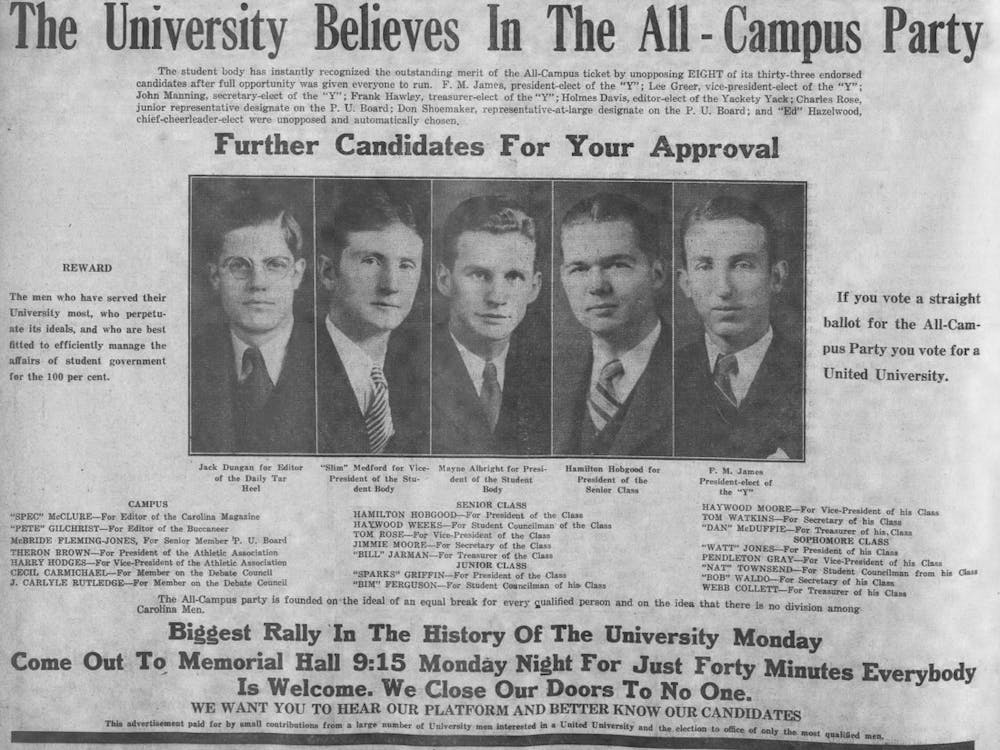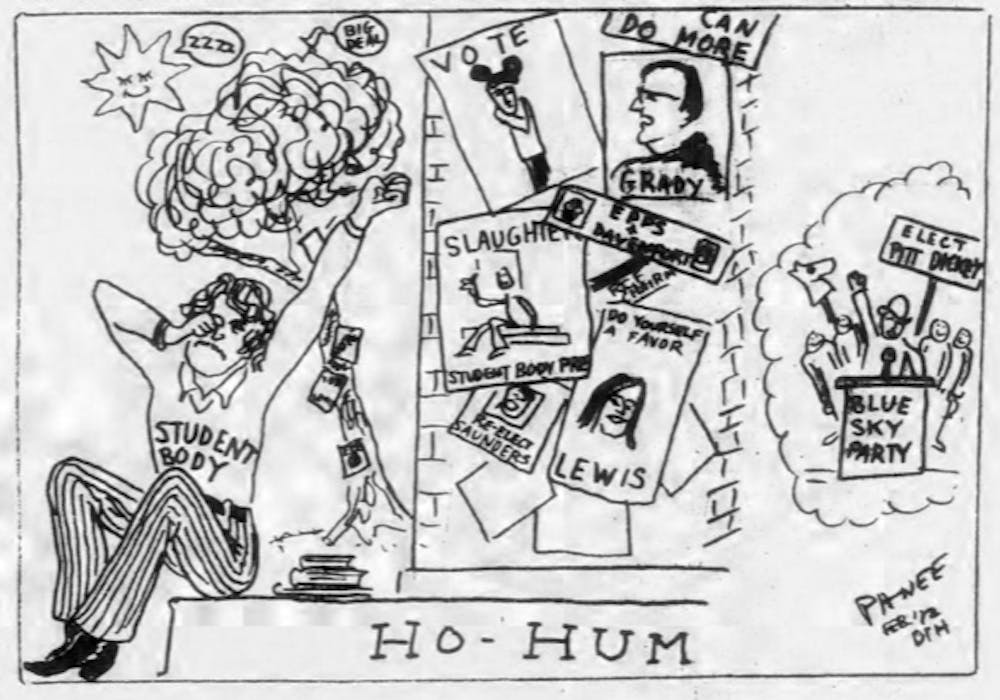When I say “party at UNC,” you probably think of booze-soaked fraternity dudes doing morally questionable things with a keg, a hose and a funnel. Or maybe you think of scumbags who convene in large groups during a global pandemic because “haha, we’re in college, we’re supposed to have fun!”
Back in the day, however, UNC had other types of “parties.” Make no mistake, the students would still occasionally get hammered and create chaos, but there were also parties of a different sort: political parties.
No, I’m not talking about the Young Democrats or College Republicans — I am referring to the various student-organized political parties that routinely nominated and ran candidates for student office.
Early history
During the 1920s, a sort of one-party state was created, which an article from The Daily Tar Heel described as “a three-year regime which literally did away with all opposition.” Yes, you read that right: the student government used to operate on the same rules as actual dictatorships.
The next year, a new system emerged. In 1931, a group of students founded a “Complete Non-Fraternity Political Organization” in response to “fraternity men being in the decided majority of the campus elective positions.” Soon thereafter, a coalition of non-fraternity and fraternity students formed an All-Campus Party (ACP).

The revenge of the nerds was had in 1933, however, as the newly organized University Party (UP) crippled the establishment’s dominance over student politics. After several years, the UP became dominated by the same frat dudes it vowed to destroy. In response, a populist Students’ Party (SP) was created in 1936. The UP and a rebooted SP continued to dominate student politics for the next two decades.
In 1969, a new group emerged: the Conservative Party. The party served as a safe space for conservative and moderate students to express themselves. The group’s very first resolution was to defund The Daily Tar Heel — then a University-funded publication — calling it “a coercively maintained monopoly, taking definite political stands and often distorting the news to suit the ideological whims of the editors.”




